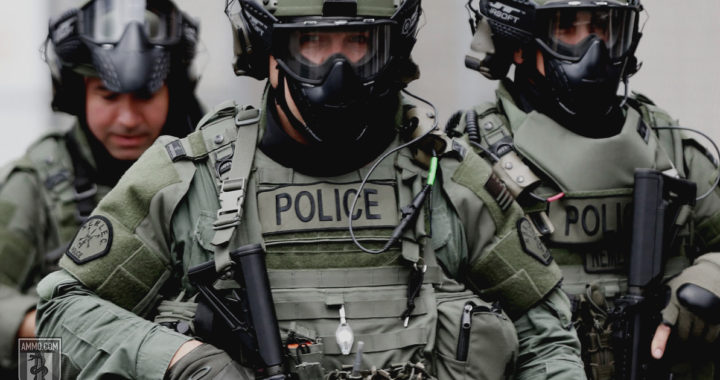It’s not about racist cops.
There are racists in every occupation. But the vast majority of them work for organizations that do not tolerate racist behavior and do not hesitate to hold their members accountable for their actions. Perhaps someday we’ll be able to say the same about America’s police departments.
American law enforcement is broken. This might come as a surprise to some residents of leafy suburbs and quiet small towns. But their police departments are not immune. Today, a ‘warrior cop’ mindset, a near-total lack of accountability, poor discipline, insufficient training, inadequate funding, and a toxic subculture that fetishizes toughness, secrecy, and victimization have severed the bonds between police and many of the communities they are sworn to protect.
Difficult, dangerous, and psychologically destructive, there is nothing easy about police work. American police straddle the fault lines where the tectonic plates of American society – violence, race, inequality, poverty, drug abuse, and social malfunction – grind away. Police are problem solvers, report-takers, counselors, and, when real trouble threatens, blue-clad rescuers. They need to know the law, the rules of evidence, de-escalation techniques, first aid, conflict resolution, and dozens of other subjects. Most importantly, police are empowered to use violence in defense of the community, and we expect them to make life and death decisions in split seconds, with only the sketchiest information.
But the complexities of police work don’t excuse brutality, racial discrimination, and other misconduct. In fact, the critical nature of the work makes poor performance far less tolerable.
Holding individual officers accountable for misconduct is necessary, but it is nowhere near enough. To make real progress, we need to hold police agencies accountable and force them to implement needed reforms. Since the 1960’s, numerous local and national commissions have made recommendations for improving American law enforcement, but as a nation we have never demonstrated the will to make changes.
We can do better. As Harry Truman once said, “The country has to awaken every now and then to the fact that the people are responsible for the government they get.” We can’t leave it to those most frequently victimized. And we can’t leave it to the police.
Not that they are unwilling to change. Police agencies across the nation have pursued reform for decades. Today, police forces are significantly more diverse than they were 30 years ago, crime prevention is data-driven, rules governing use of force have been adopted, citizen review boards are common, and community policing programs are widespread. Many departments are working hard to improve.
But fundamental problems remain.
Too many police see themselves as warriors, rather than guardians. They are occupiers, not members of the communities they patrol. Police organization, training and tactics reinforce this mindset.
Politically powerful police unions, ill-conceived qualified liability, and uncritical support from misguided ‘law-and-order’ advocates have virtually eliminated police accountability, demoralizing committed officers and destroying public trust and confidence in their agencies.
Police training at all levels is insufficient. The complexities of the job, the critical nature of the work, and the risks we assume if police fail are not reflected in the amount of training police officers receive.
Our low-tax, no-frills approach to government is starving police agencies and is killing Americans. Low pay, lack of equipment, and too few officers are daunting obstacles to high performance.
Working almost entirely beyond the view of their supervisors, police officers are rarely subject to organizational discipline. In many departments, rules, regulations and procedures are routinely ignored.
Police subculture emphasizes aggressive policing, maintaining complete control of every situation, never showing weakness, and an ‘us versus them’ worldview. A perfect recipe for violent confrontations.
We know the problems and we’ve been suggesting solutions for decades. Real change won’t be easy and it won’t be fast. But it can happen. It’s past time we started.
May 30, 2020
